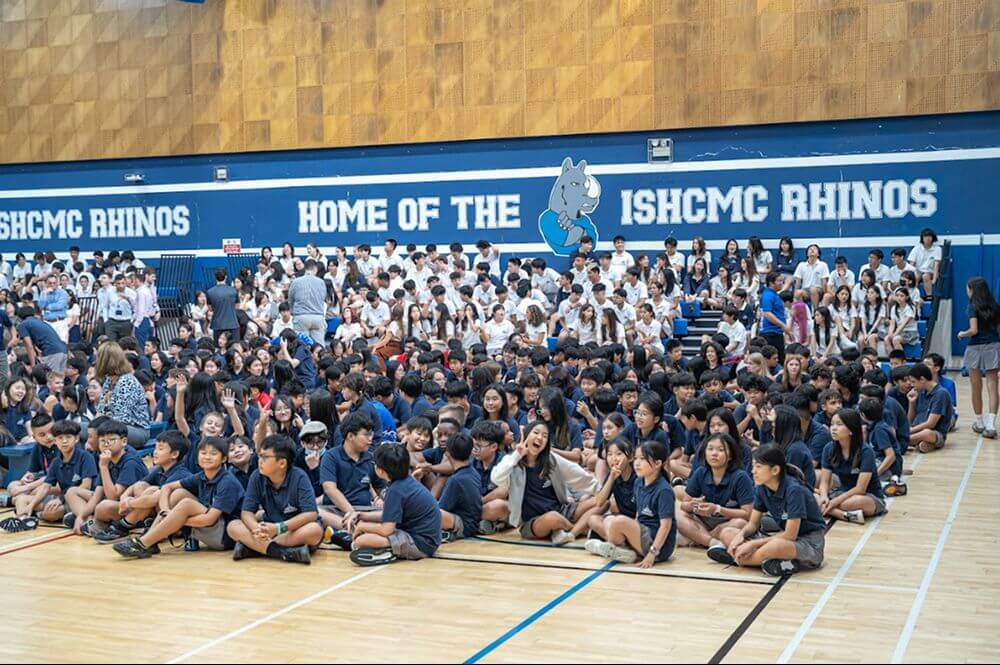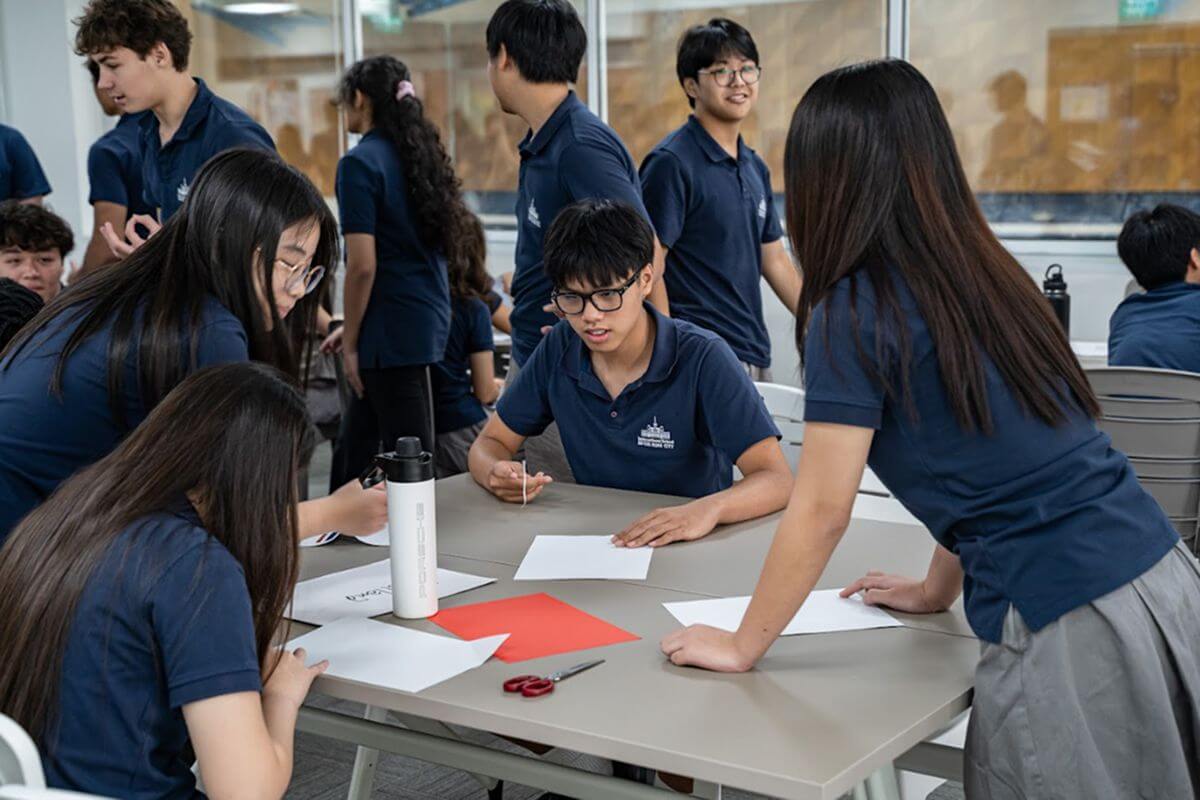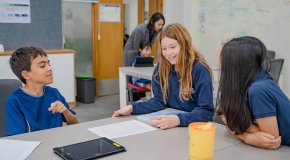How to Develop Self Awareness Skills in Students
Self awareness gives students a deeper insight into their thoughts, emotions, and behaviors. This basic skill supports their growth as people and helps them learn better. When students understand themselves, they make better choices about studying, friendships, and their future.
This article shows how self awareness improves student life and shares hands-on methods to help young learners develop these self awareness skills. We’ll explore proven ways to build student confidence and encourage them to think about themselves as a natural part of daily life.
What are Self Awareness Skills?
Self aware children understand their inner world of thoughts, feelings, and actions. A self-aware child sees both their strengths and areas for growth and understands how their behavior touches the lives of others around them.
As children develop self awareness, they become more thoughtful and skilled in life. This understanding leads to stronger friendships, smarter decisions, and greater confidence in pursuing their interests.
Self awareness appears in everyday moments:
- When children notice emotional patterns, they start to spot what sparks their feelings. For example, a child might realize they feel upset when others talk over them during class discussions or ignore their ideas at playtime.
- Understanding personal abilities shapes how children approach challenges. A student who knows they excel at creative writing but need extra time with math can plan their study time better and ask for help when needed.
Benefits of Self Awareness for Students
Students who develop self awareness skills gain several valuable advantages in their lives:
- Better Control of Feelings
Self awareness forms the base of understanding emotions. Students who know themselves well can better handle their feelings and connect with their classmates’ experiences. This approach makes talking to others smoother and helps build lasting friendships.
- Room to Grow
Students who see their talents and shortcomings know where they shine and where they need practice. For instance, a student might notice they excel at creative writing but struggle with public speaking. This knowledge guides them toward joining writing clubs while practicing presentations in small groups to build confidence.
- Enhanced Decision-Making
When students know themselves well, they choose options that match their values and future plans. A self-aware student might choose study partners who share their learning styles or pick classes that suit their interests and goals.
- Strengthened Relationships
Students who understand their own feelings often read others better, too. They might spot when a friend feels down or know what to say to a teammate who’s nervous before a game. This leads to stronger friendships and better teamwork.
- Less Stress
Students who recognize what upsets them can handle pressure better. They learn what helps them calm down – maybe taking deep breaths before a test or talking to a friend when they feel overwhelmed. They also know when to ask teachers or family for help.

How to Develop Self Awareness Skills in Students?
Students develop self awareness through steady steps and regular practice. Teachers guide their students to understand their thoughts, emotions, and actions better. Let’s consider the following simple classroom exercises to help students build these skills naturally.
Use Reflection Questions
Students can build self awareness through simple daily reflection. At the end of the day they might spend quiet moments asking themselves thoughtful questions that bring out good feelings and experiences.
They could think about what made them feel thankful that day or remember choices they felt good about. Questions like “What brought you joy today?” or “What action made you feel proud?” help students notice their growth and happiness.
Teachers can guide this practice by sharing printed question lists that spark positive thinking. This gentle approach helps students learn about themselves while focusing on uplifting thoughts and experiences.
Highlight Strengths and Challenges
Students grow best when they understand their mix of strong and developing skills. Each person brings different abilities – areas where they shine and parts they’re still working on. Teachers can guide students to look at these differences without judgment.
When students spot their natural talents, they gain confidence in their abilities. These strong points become tools to help tackle tougher tasks. Students should remember that finding something challenging, like learning a new skill, just requires stable practice and patience over time.
Acknowledge Others’ Feelings
Teaching students to understand others’ feelings helps build empathy and creates a supportive classroom. Students learn to read facial expressions, tone of voice, and body language to notice how their peers feel.
Teachers can model this skill by naming emotions and asking students to share their feelings during class discussions. Simple exercises like role-playing or describing emotions in stories let students practice recognizing different feelings.
When students see their classmates feel sad, happy, or scared, they become more thoughtful and kind. As a result, the classroom becomes a place where everyone feels heard and valued.

Create a Class Bucket List
A class bucket list gives students space to dream and share their hopes, which is essential for developing self-awareness. Teachers can set up different areas in the classroom, each with its own poster and theme. One area might focus on dream destinations, another on new skills to master, and others on ways to improve the world.
Students move between these spots, writing their wishes and goals on each poster. The finished posters become a shared collection of the class’s dreams and plans. Teachers can point to these goals during the year to remind students why their daily work matters and to helps students stay motivated.
Develop goals
Each student picks goals close to their heart – such as solving more complex math problems or making the school sports team. Teachers guide students to write clear, measurable steps toward these goals in personal reflection binders.
Regular one-on-one meetings between teachers and students help track progress and adjust plans. These chats let students see how far they’ve come and what steps lie ahead. Through goal-setting, students learn to map their growth and celebrate their progress along the way.
Hold regular class meetings
Morning class meetings give students a daily space to connect and share thoughts that matter. During this time, students pause to notice their feelings and think about what support they might need for the day ahead. These meetings build trust among classmates and create a warm classroom feeling.
While some think morning meetings work best for younger children, students of any age benefit from starting their day with group reflection and connection. The quiet moments of sharing help students tune into themselves while strengthening bonds with their peers.
Practice mindfulness
Mindfulness teaches students to notice what happens in their thoughts, bodies, and surroundings. Making mindfulness part of each day helps students grow stronger at managing themselves. Students can try simple activities to build this skill: taking slow, deep breaths, looking around and saying what they see, hear, and smell, tidying their study space mindfully, or expressing their feelings through art.
People who know themselves well understand this truth – they keep growing and discovering new things about themselves each day. Like any skill worth learning, self awareness takes gentle practice over time.
At ISHCMC, students learn self awareness skills as a path to building resilience. Through self-reflection and personal growth, they develop the skills to bounce back from challenges and pursue their goals. The school’s core values – Curiosity, Achievement, Resilience, and Empathy – guide students on their learning journey. This self awareness, fostered as part of the Resilience value, empowers students to overcome difficulties and reach their aspirations.

Develop Self Awareness for Students at ISHCMC
Self awareness shapes how students think, act, and relate to others. It builds the foundation for emotional intelligence and helps them make thoughtful choices in school and beyond. Their ability to understand their strengths, emotions, and areas for growth sets them up for meaningful personal development.
It’s important to nurture your child’s self awareness skills in a supportive learning environment. Let’s discover ISHCMC’s student-centered approach – apply now with us!






